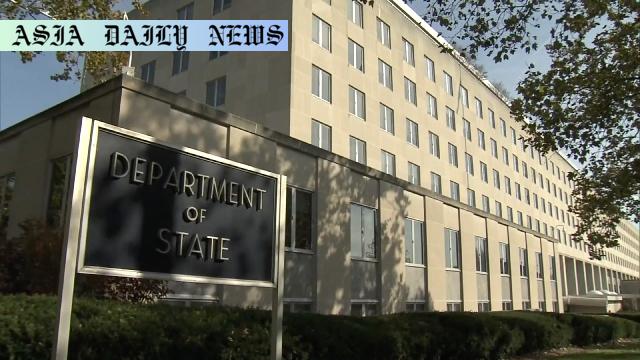Foreign Aid: US partially suspends foreign aid to align with President Trump’s ‘America First agenda,’ sparking concerns.

US Suspends Foreign Aid Programs for Review: What You Need to Know
Background of the Decision
On January 20, 2017, President Donald Trump signed an executive order requiring a 90-day suspension of foreign aid programs to facilitate a comprehensive review and realignment under the ‘America First’ policy agenda. This directive underscores the administration’s intent to ensure that U.S. financial support to foreign nations aligns with broader policy goals and national interests.
Details of the Suspension
Secretary of State Marco Rubio, in coordination with the U.S. Agency for International Development (USAID), announced the partial pause of foreign assistance programs funded under their jurisdiction. Despite the broad suspension, specific exemptions have been granted to military financing for Israel and Egypt as well as emergency humanitarian aid aimed at providing food, medicine, and shelter to those in immediate need.
Programs Subject to Review
While waivers have been granted for life-saving humanitarian support, some programs addressing controversial issues, such as abortion and transgender surgeries, are under close examination. The administration has expressed the need to ensure that all foreign aid initiatives are efficient, purposeful, and reflective of the new administration’s priorities.
Impact and Concerns
This suspension has sparked mixed reactions. Supporters of the administration applaud the move as a step toward responsible spending and strategic alignment. However, the decision has raised concerns among advocacy groups and organizations that rely on U.S. funding for global social programs. Several groups fear that critical programs, especially those focusing on women’s health and marginalized communities, could face long-term setbacks depending on the outcome of the review.
Implications for U.S. Foreign Relations
The decision to suspend and review foreign aid programs reflects President Trump’s campaign promises to prioritize ‘America First.’ While this move may resonate with some domestic constituencies, it could have far-reaching consequences for U.S. foreign relations. Many nations depend heavily on American aid to sustain their social and economic development, and the policy shift may signal a reduced role for the U.S. in global humanitarian efforts.
Conclusion
As the 90-day pause progresses, the State Department’s review will likely provide clarity on the future of U.S.-funded foreign aid programs. The outcome will not only shape America’s approach to international assistance but also offer insight into the administration’s broader policy goals and vision for global engagement.
Commentary
Commentary: Reevaluating Foreign Aid under ‘America First’
Balancing Efficiency and Compassion
The Trump administration’s decision to pause foreign aid programs and conduct a detailed review reflects an effort to streamline U.S. initiatives to align with national interests. While it is important for any country to ensure its resources are utilized effectively, this move raises critical ethical questions about the role of the U.S. in global humanitarian efforts. Humanitarian aid has often been a cornerstone of America’s soft power, and policies that curtail this commitment could erode its influence abroad.
The Question of Prioritization
While waivers for programs addressing immediate humanitarian needs provide reassurance, the scrutiny of services such as abortion and transgender surgeries highlights the ideological divide shaping this administration’s policies. These are deeply polarizing issues, and the decision to review such programs suggests the administration aims to prioritize traditional values over inclusivity in its foreign aid agenda.
Long-Term Implications
Visibility into how these changes will affect recipient nations, especially those reliant on U.S. support for health and social programs, is limited at this stage. Many of these countries depend on international assistance to address systemic challenges, and an abrupt reduction or reallocation of resources could exacerbate vulnerabilities. Ultimately, the balance between promoting efficiency and fulfilling moral obligations is delicate, and its management will determine how this policy shift is perceived globally.


